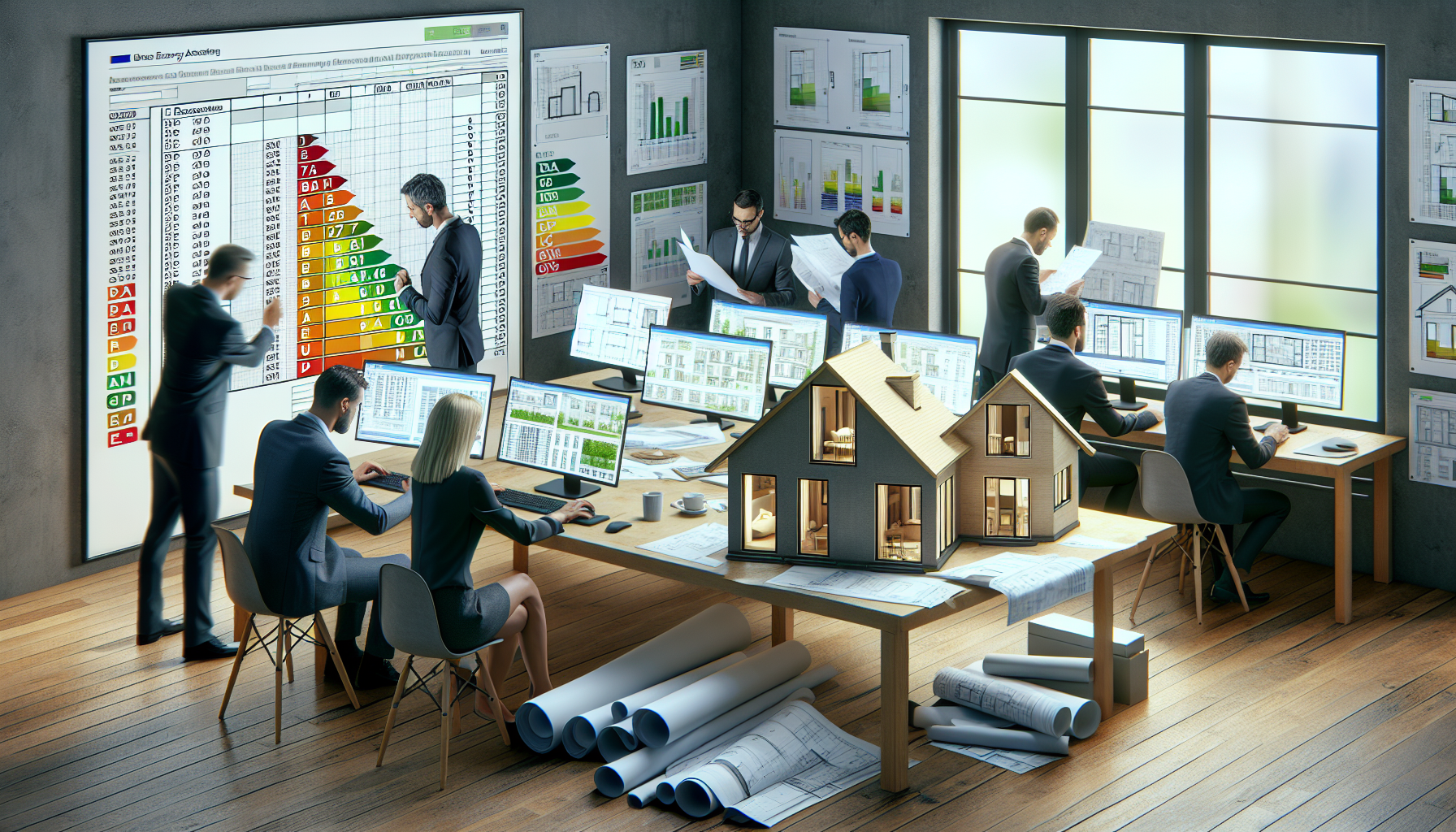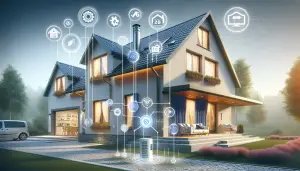Understanding SAP Scores
Standard Assessment Procedure (SAP) scores are integral in determining the energy efficiency of a house. Developed by the UK government, these scores assess the energy performance of residential buildings. A higher SAP score signifies a more energy-efficient home, which not only reduces energy bills but also minimises environmental impact.
Why SAP Scores Matter in House Development
For building consultants like Ratio Seven, SAP scores serve as a benchmark to ensure new buildings comply with environmental and energy-saving standards. Here are some reasons why maximising SAP scores in house development is crucial:
- Compliance with regulations: High SAP scores help meet building regulations and standards.
- Cost savings: Energy-efficient homes lower utility bills for homeowners.
- Environmental impact: Reducing carbon emissions aligns with sustainability goals.
- Marketability: Energy-efficient homes are more attractive to buyers.
Strategies to Maximise SAP Scores in House Development
To maximise SAP scores in house development, developers should focus on several key areas that influence energy performance. Below are some strategies to consider:
Optimising Building Orientation and Design
The orientation and design of a house significantly impact its energy efficiency. Here are some tactics:
- Maximise natural light: Aim for larger south-facing windows to harness solar energy.
- Insulation: Effective insulation reduces heat loss.
- Ventilation: Proper ventilation maintains indoor air quality without excessive energy use.
Using Energy-Efficient Materials
Choosing the right materials can have a profound effect on SAP scores:
- Windows: High-performance double or triple-glazed windows minimise heat loss.
- Roofing: Insulated and reflective roofing materials contribute to energy saving.
- Walls: Use insulated concrete forms or similar materials to enhance energy efficiency.
Incorporating Renewable Energy Solutions
Renewable energy sources are essential for high SAP scores:
- Solar panels: Convert sunlight into electricity, reducing reliance on conventional power.
- Heat pumps: Efficiently transfer heat from the ground or air for heating purposes.
- Wind turbines: Generate electricity and help achieve higher SAP scores.
Efficient Heating and Cooling Systems
Heating and cooling are major contributors to a home’s energy consumption. Implement the following systems:
- Underfloor heating: Provides even heating with less energy consumption.
- Smart thermostats: Adjust heating and cooling based on occupancy and preferences.
- Energy-efficient boilers: Use less energy to produce the same heat outputs.
Advanced Insulation Techniques
Effective insulation is crucial for maintaining a consistent indoor temperature:
- Loft insulation: Prevents heat from escaping through the roof.
- Wall insulation: Reduces heat loss through the walls.
- Floor insulation: Minimises heat loss through the ground.
Water Conservation Methods
Water efficiency also impacts SAP scores. Implement these methods:
- Low-flow fixtures: Use less water without sacrificing performance.
- Rainwater harvesting: Collect rainwater for non-potable uses.
- Greywater recycling: Reuse water from sinks and showers for irrigation.

Energy-Efficient Lighting Solutions
Lighting has a significant impact on a property’s overall energy consumption. Consider the following:
- LED lighting: Use LED bulbs that consume less electricity.
- Smart lighting: Automate lighting based on occupancy and natural light levels.
- Daylighting: Maximise natural light to reduce dependence on artificial lighting.
Optimising Appliance Efficiency
Household appliances are another area to focus on for high SAP scores:
- Energy Star-rated appliances: Choose appliances that use less energy.
- Smart appliances: Use appliances that can be programmed for energy efficiency.
- Eco-friendly options: Look for appliances designed to have minimal environmental impact.
SAP Scores Summary
Maximising SAP scores in house development involves a holistic approach. From the building design and orientation to incorporating renewable energy solutions and choosing energy-efficient materials, every step contributes to higher SAP scores and improved energy efficiency. By focusing on these strategies, developers like Ratio Seven can create homes that are not only environmentally friendly but also cost-effective for homeowners.
FAQs
What are SAP scores and why are they important?
SAP scores, or Standard Assessment Procedure scores, measure the energy efficiency of a residential property. These scores are crucial for house developers as they help ensure compliance with energy efficiency regulations, reduce the environmental impact of buildings, and provide a benchmark for improving building performance.
How can Ratio Seven help maximise SAP scores?
Ratio Seven specialises in innovative building solutions that focus on energy efficiency. From advanced insulation techniques to renewable energy implementations, Ratio Seven can provide house developers with the expertise and materials needed to maximise SAP scores in house development.
What materials should be used to improve SAP scores?
To improve SAP scores, house developers should consider using high-performance windows, insulated roofing and wall materials, and energy-efficient heating and cooling systems. Additionally, incorporating renewable energy solutions like solar panels and heat pumps can significantly boost SAP scores.
Can renewable energy solutions substantially improve SAP scores?
Yes, renewable energy solutions like solar panels, wind turbines, and heat pumps can greatly enhance SAP scores. These technologies reduce reliance on conventional energy sources, contributing to lower carbon emissions and improved energy efficiency.
Is it expensive to implement strategies to maximise SAP scores?
While some strategies to maximise SAP scores in house development may require an initial investment, the long-term benefits often outweigh the costs. Energy-efficient homes result in lower utility bills, reduced maintenance costs, and higher property values, making the investment worthwhile.




